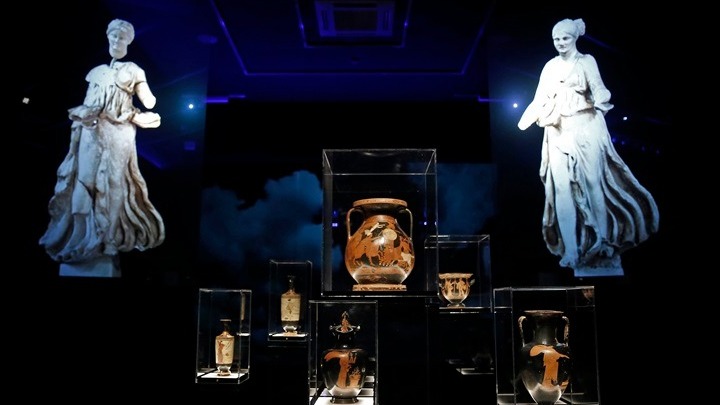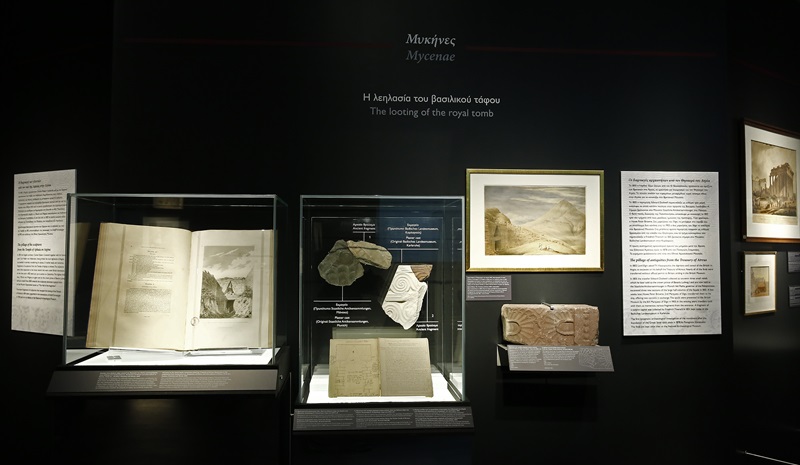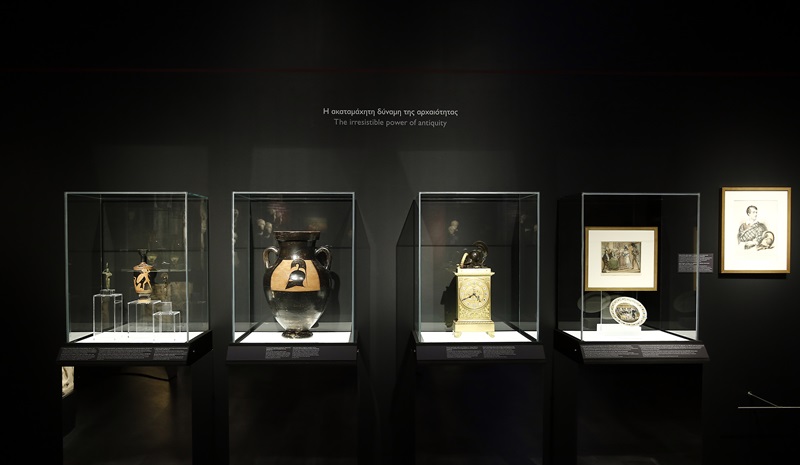'For these we have fought the war', a National Museum exhibition on 1821

An exhibit juxtaposing Greek antiquities with 18th and 19th century works will open at the National Archaeological Museum on February 11 as part of the events celebrating the bicentennial of the Greek War of Independence (1821).
Prime Minister Kyriakos Mitsotakis will inaugurate the exhibit which is named after a quote attributed to General Yiannis Makrygiannis, a leading historical figure who admonished Greek fighters not to sell or give away any of the antiquities in Greece ("because it's for these we fought the war"), as he writes in his memoir.
"For these we fought: Antiquities and the Greek Revolution" consists of five sections and presents a total of 26 artifacts juxtaposed with 26 modern works, mainly of European painters showing Greek landscapes of the time, linking Greece to Europe.
Objects reflect philhellenism as illustrated by iconography taken from antiquity, while reference will be also made to the loss of antiquities and the contemplation of monumental architecture throughout Greece - from the Acropolis to the Epicurean Apollo Temple at Bassae - that contributed to the Greek people's understanding of the role antiquities played in forming their collective identity.
The show will be supported by digital projections of drawings from pre-revolutionary Greece, accompanied by descriptions by French statesman and writer Chateaubriand.
"The exhibit is interesting because it links two commemorations, the 2,500th anniversary since the naval battle of Salamis and the battle of Thermopylae with the Greek Revolution," Minister of Culture Lina Mendoni said on Tuesday during the presentation of the show.
"The Revolution did not just happen suddenly: It resulted from a series of developments related to the awakening of national consciousness, which was already detectable in the Late Byzantine era. From the 18th century on, this development matured and the Revolution came as a result of intellectual, ideological and political movements of the era, (...) adopting in reality the basic valuse and principles of ancient Greece, culminating in Arete and Liberty, as they are experienced after the Greek victory in the Persian Wars," Mendoni explained.



